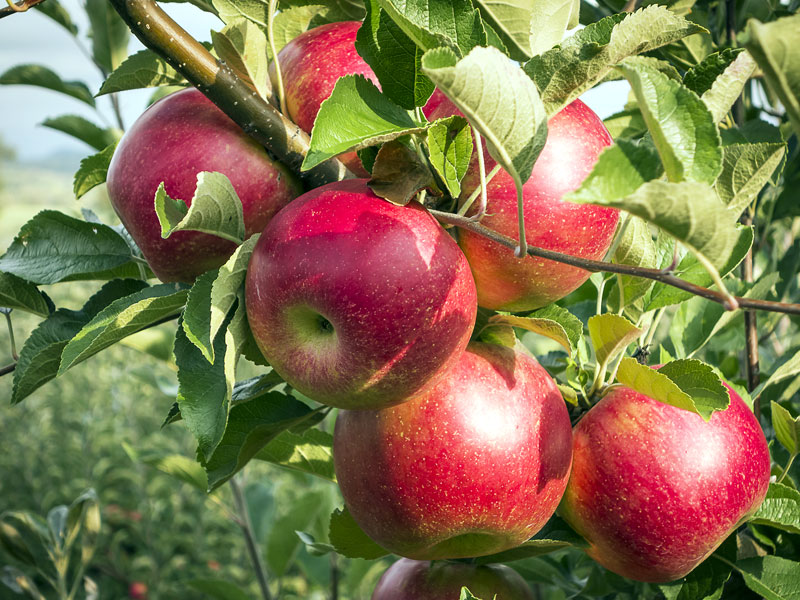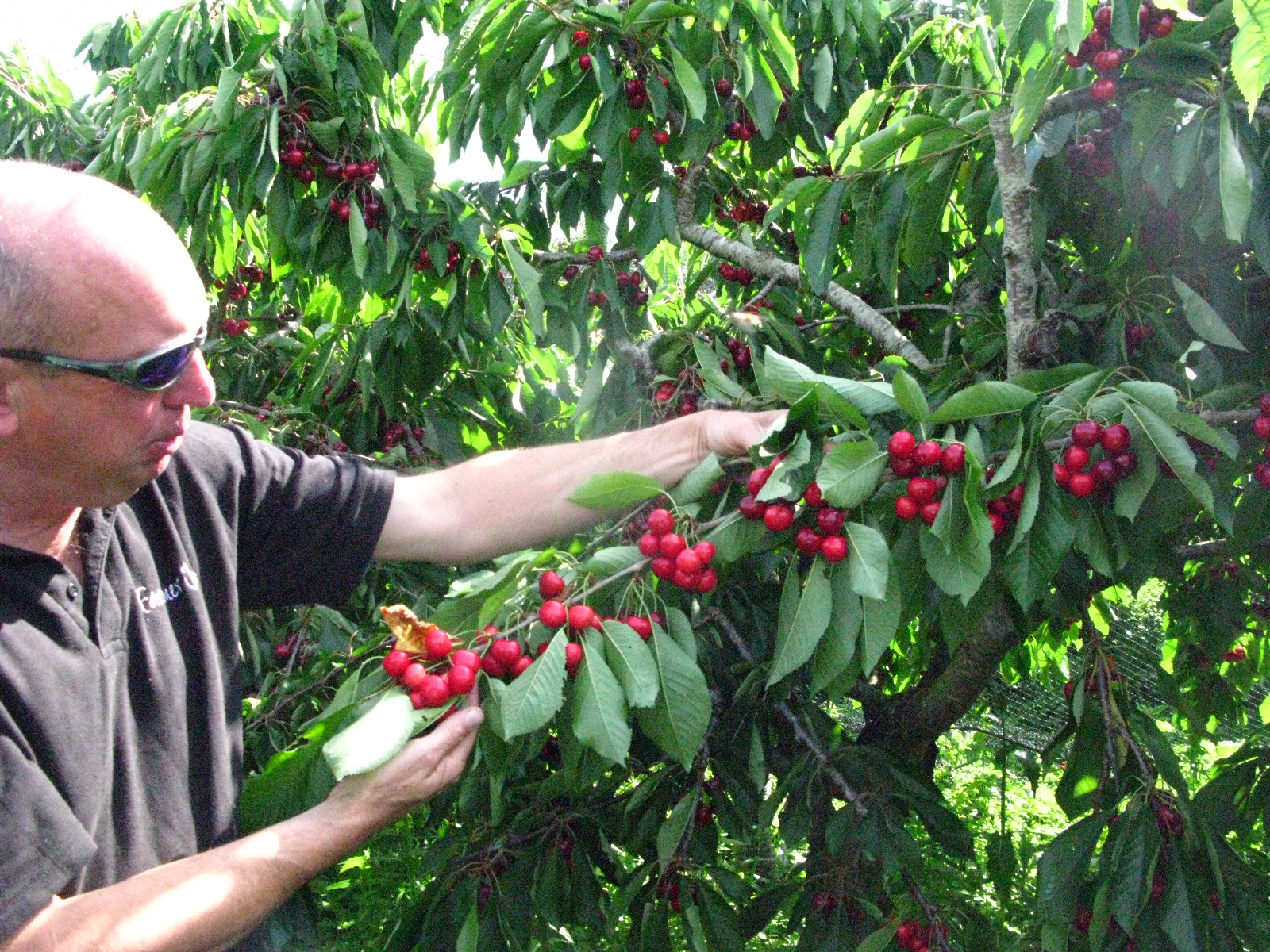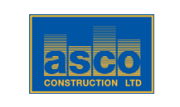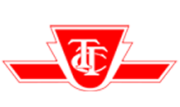By Sergio De Lara

Are you thinking of planting a fruit tree in your property? Growing your own fruit can be a very rewarding experience. Many fruit trees can also make great accents in ornamental gardens. Before planting your tree, here are a few things to consider that can make or break the success of this tree.
Cross-pollination
Firstly, you should be aware that many types of fruit trees that can grow in the region are not self-fruitful. You will need to plant 2 trees, not just one in order for them to yield fruit. These trees require pollen from a different cultivar in order to produce plentiful fruit (or any at all). So having one McIntosh and one Red Delicious apple tree will make sure both produce bountiful fruit. They do have to be different cultivars of the same species, however. Two of the same types of apples or an apple and a pear together won’t work. Planting bee-attracting flowers will also increase their numbers in your yard and improve the pollination of your tree
Fruit trees that require cross-pollination include:
- Apple
- Pear
- Sweet Cherry
- Plum

Keep in mind that in Toronto there are so many crabapple trees that you would not likely need to plant another apple tree on your property.
Self-fruitful trees that can grow in the region include:
- Peach
- Apricot
- Tart or Sour Cherry
- Nectarine
Planting conditions
As you would for any type of gardening, you will need to plant your tree in organically rich soil that drains well and gets plenty of direct sunlight (at least 6 hours a day).
Organic matter such as old straw, hay, lawn clippings, sawdust and wood shavings may be applied as a mulch under the tree. The mulch, which should be deep enough to suppress weeds and conserve moisture, should be kept away from the tree trunks and extend out to the spread of the limbs.
Make sure you have enough space for the species and size of the tree or vice-versa. Most fruit trees come in three sizes: Dwarf (4 – 10 ft), Semi-Dwarf (10 – 16 ft), and Standard (up to 25 – 30 ft). Dwarf and Semi-Dwarf trees tend will be more practical and easier to maintain in the downtown area and most city gardens, but all yield standard-sized fruit. Click here for more detailed information about tree planting and soil conditions.
Like any other tree, fruit trees will need to be watered regularly. Just remember that the soil needs to drain. If planted in adequate soil, most trees won’t require fertilizer before they reach their third or fourth year and begin bearing fruit. Once they do, light applications of fertilizer in the early spring could be beneficial.
Harvesting and pests
Fruit trees will need a spray program to control insects and disease if you wish to produce a healthy crop of edible fruit. Remove infested or infected leaves, fruit and prunings from the area and dispose of them because they may be a source of pests even after they have been removed from the trees. Maintain an open canopy in the tree to improve air movement and reduce wetness that promotes disease development.
You might need to drape a bird net over your tree to prevent birds from reaching your fruit as it becomes ripe. It is also recommended you place a spiral plastic guard around the trunk to prevent rodent damage to the tree trunk. Be sure to remove and inspect the guards several times a year.
When growing at home, you can leave fruit on the tree until it reaches peak quality, but remember that fully mature fruit will not keep long.
If you would like help picking the fruit from your tree, or if you worry about having too much fruit even after setting some aside for preserves, there is a wonderful organization that can help you. Not far from the tree will have it’s volunteers harvest the tree and then split the fruit 3 ways: 1/3 is offered to the homeowner, 1/3 is shared among the volunteers, and 1/3 is delivered by bicycle to local food banks, shelters, and community kitchens. A win for everybody!
Call 416-201-8000 for a free consultation. You can also visit our tree planting page about more information about our tree planting services.










